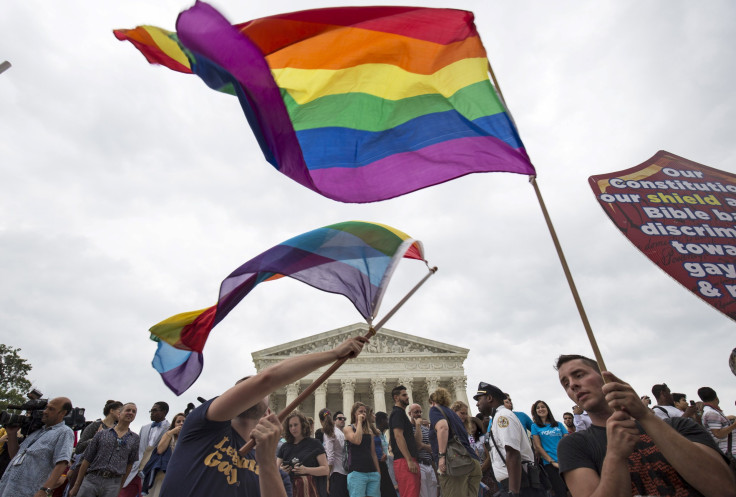Same-Sex Marriage In Alabama: Chief Justice Orders Judges To Deny Gay Marriage Licenses

Alabama’s chief justice doubled down Wednesday on his backing of the state’s ban on same-sex marriage, issuing an administrative order that conflict between federal and state rulings on the issue has yielded confusion and “affects the administration of justice in this state,” according to Alabama.com. The decision tells lower judges in the state to hold fast and continue denying gay couples wedding licenses.
Chief Justice Roy Moore, who was sworn in to the state's highest court in 2001, wrote that the June U.S. Supreme Court ruling last year upholding gay marriage conflicts with the state’s constitution and that probate judges have a duty to deny same-sex couples seeking marriage contracts. Moore said in his order that he has the authority to issue such orders because of a state law that gives his office the ability to alleviate any circumstances that adversely affect “the administration of justice within the state.”
When the Supreme Court ruled in June that same-sex marriage was the law of the land, Alabama was one of at least three states where local officials refused to honor the decision. In Kentucky, Kim Davis, a county clerk, became famous overnight for refusing to issue same-sex marriage documents and was the subject of attention on the campaign trail among Republican presidential candidates. In North Carolina, magistrates began recusing themselves from performing civil weddings for any couples under a state law that allows officials to avoid marriage duties if they have religious objections.
The Alabama court argued at the time that while many of the advocates of same-sex marriage outside of the courthouses following the Supreme Court ruling chanted “love wins,” the decision to ignore the federal court’s decision had nothing to do with love.
“This notion has broad public appeal and is, perhaps, the mantra most repeated in public discussions of this matter," the court wrote about the chant. "But although love may be an important factor in a lasting marriage, civil marriage has no public interest in whether the people seeking a marriage license love one another.”
At the time, Moore was not a concurring or dissenting judge of that ruling.
© Copyright IBTimes 2025. All rights reserved.





















